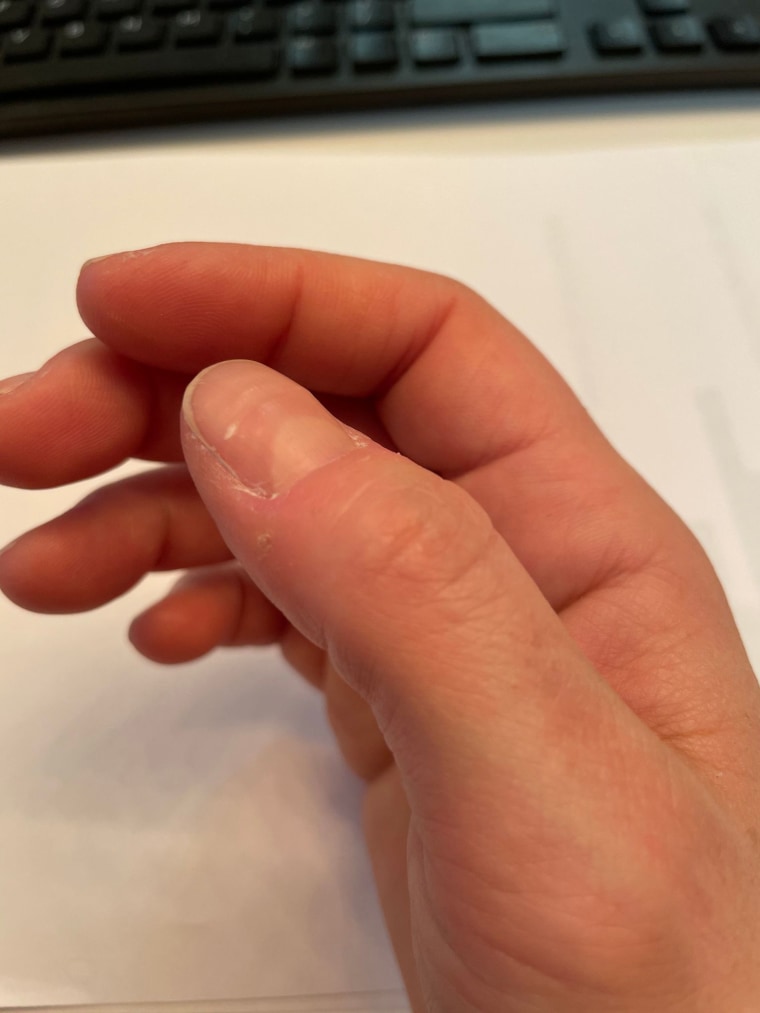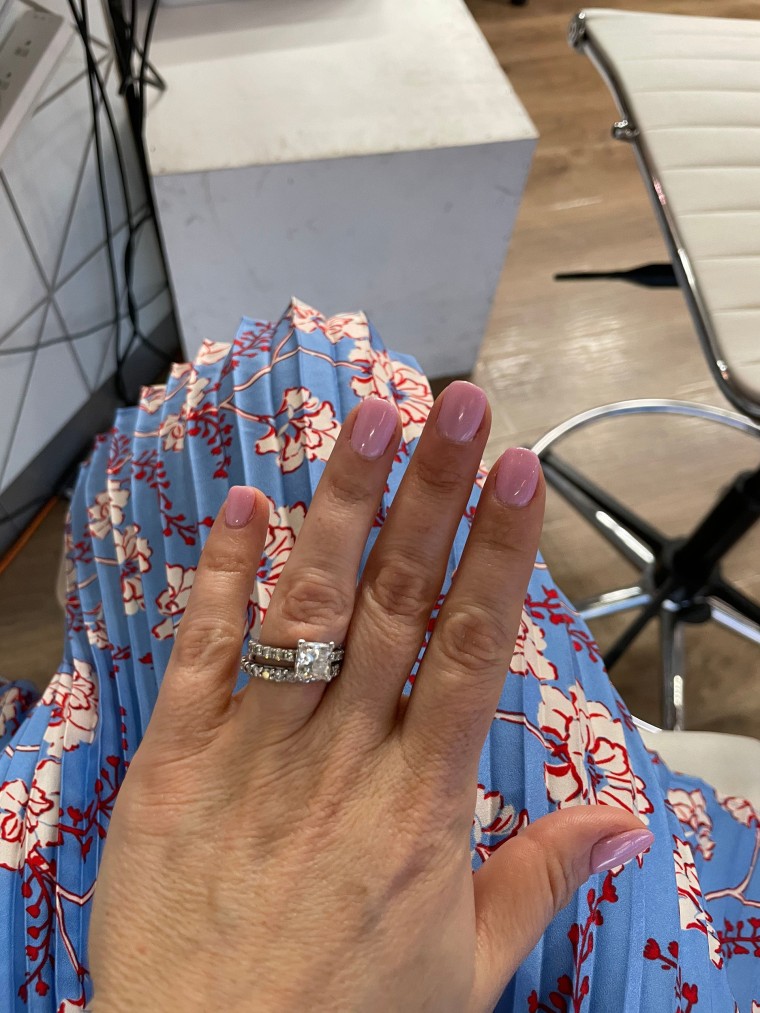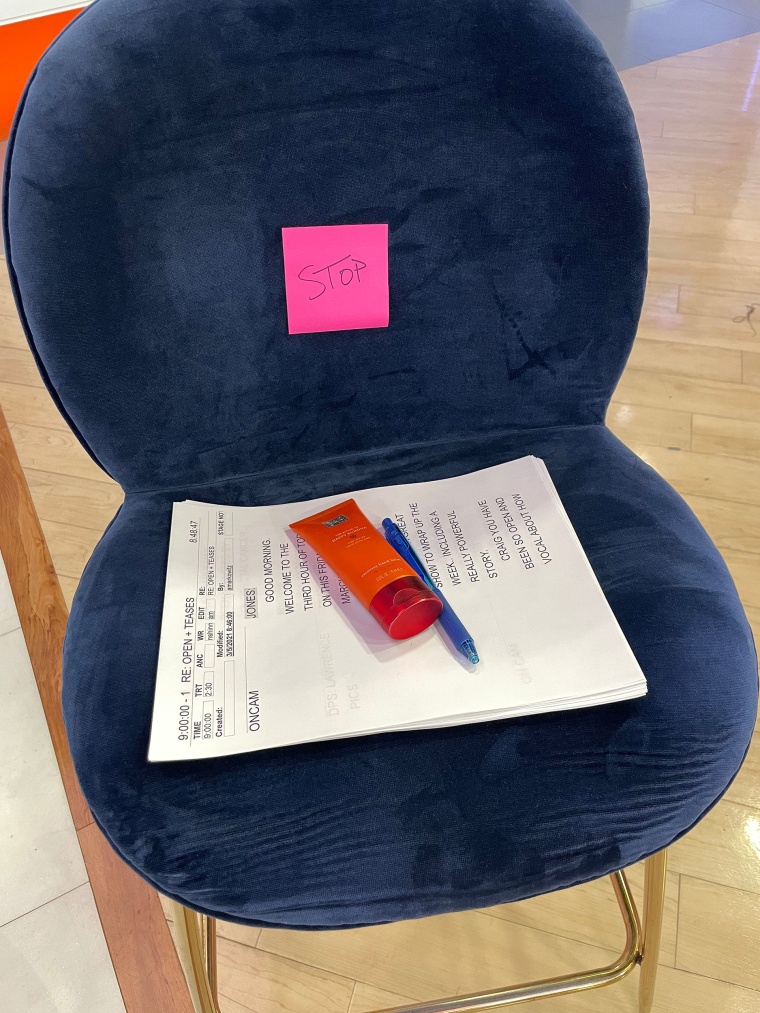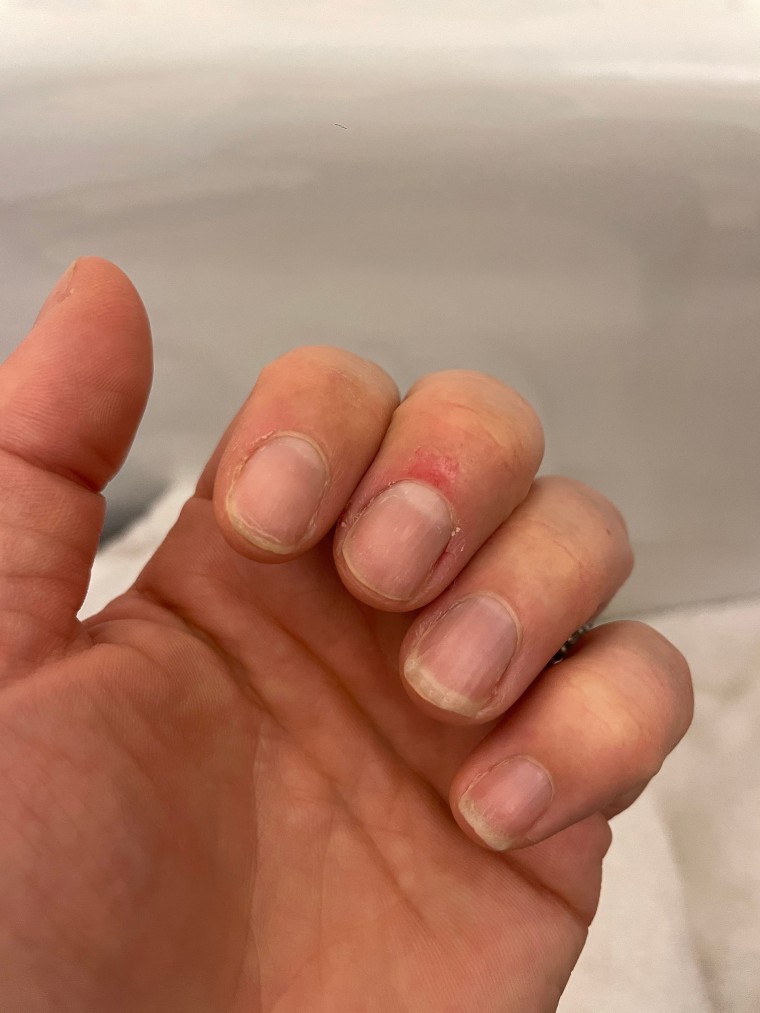Dylan Dreyer announced on Monday morning that she has made progress in stopping her nail-picking after a years-long struggle with the habit.
"I've been biting and picking the skin around my nails for as long as I can remember," Dylan said on the 3rd Hour of TODAY. "It's always my New Year's resolution, but it's something I just can't shake."
After getting an infection in her finger from the nail-biting, Dylan consulted with Dr. Jenny Yip, a clinical psychologist at the Renewed Freedom Center in Los Angeles, California, who helped guide her through a method known as habit reversal training. The training is used with several repetitive, body-focused behaviors like hair-pulling and nail-biting or picking, which are considered part of the obsessive compulsive spectrum disorder. Yip emphasized that these behaviors differ from obsessive compulsive disorder, or OCD.

The goal of habit reversal training is to "increase the awareness" of when a person does a habit, like nail-picking or biting, and to change the way a person thinks of the behavior, according to Yip.
"Essentially what we do is we ensure that the patient's awareness is increased in terms of when the behaviors occur," said Yip. "... And then we teach them competing responses."
The process is thorough: Dylan said that she first filled out a questionnaire assessing her behavior, then identified locations where she tends to pick at her nails using a sticky note. She also kept track of the situations she was in when she had the urge to pick and bite her nails, like when she's giving her two sons a bath. She also applied lotion to her hands to make it more difficult to bite or pick.
"The two times when the behaviors typically occur is either when the person is completely overwhelmed and therefore their attention is really high, or they're underwhelmed and out of boredom they're engaging in that behavior," Yip said.
Dylan also kept track of the thoughts she had whenever she felt anxious, which Yip said can help change behavior. The "cognitive component" of habit replacement therapy focuses on positive self-talk, even after setbacks, and emphasizes identifying and recognizing tension and finding healthier ways to handle it instead of thinking about it negatively.
"If you're thinking negatively, then you're going to feel negatively, and more importantly you're going to behave unproductively because what we do depends on what we think and how we feel," Yip explained. "So in order to change the behaviors and to change the emotions we have to identify those thinking patterns you have that aren't serving you. ... We're looking at solutions rather than problems."
Dylan also replaced the picking with a different behavior, fidgeting with a pen or jewelry whenever she had the urge to pick.
Later in the process, Dylan began getting gel manicures, which worked as a preventative measure to keep her from picking at her nails. Yip said that these replacements and diversions can vary from person to person.

"For some people, we might say, 'OK, you're going to need to wear these gloves' ... or 'You might have to put really oily lotions on your fingers,' so it's so slippery that you can't really pick at anything," Yip said. "Maybe you have to keep your nails short; you might have to put BandAids over your fingers to serve as a barrier to picking. And then anytime you feel the urge to pick at it, then utilize one of these other tools, which could be playing with a toothbrush or feather, for some tactile sensation that serves as the relief you're looking for."
Dylan said that as she continued her journey, she became more aware of her behaviors.
"I'll notice, just mindlessly, if I was about to go do something ... but I'm very aware of it, so now I actively stop it," she explained.

"The awareness piece is the most important piece," said Yip. "Half the battle is knowing that. When you do it, how you're doing it, what you're thinking of when you're doing it."
Yip said that in the end, the goal of habit reversal training is to no longer need to rely on the alternative behavior.
"Once this new behavior becomes the go-to habit, then we would start talking away some of the barriers that we initially put in, such as the gel manicure, and see how (Dylan) does," Yip said. "Then take away the pen, and see how she does."
While Dylan has been making progress, Yip said that there's no "cure" for a bad habit, but that shouldn't discourage people.
"The more important thing is that you know what to do when you do slip, if and when you do slip, because life is always going to be about challenges," Yip said. "You're going to have challenges, and then the question isn't whether you're going to fall off the horse ... The question is how quickly you'll get back on. ... Think of it as a behavior that can come back, and you can be in control of it."
Dylan said on TODAY that she is at a point where she is trying to get back on the horse: After missing out on a manicure last week, she began biting her nails again and is now returning to her earlier methods.

"Today, I'm making a point to use lotion, carry my pen around and to focus on not being so obsessed about how my fingernails feel," Dylan said.
